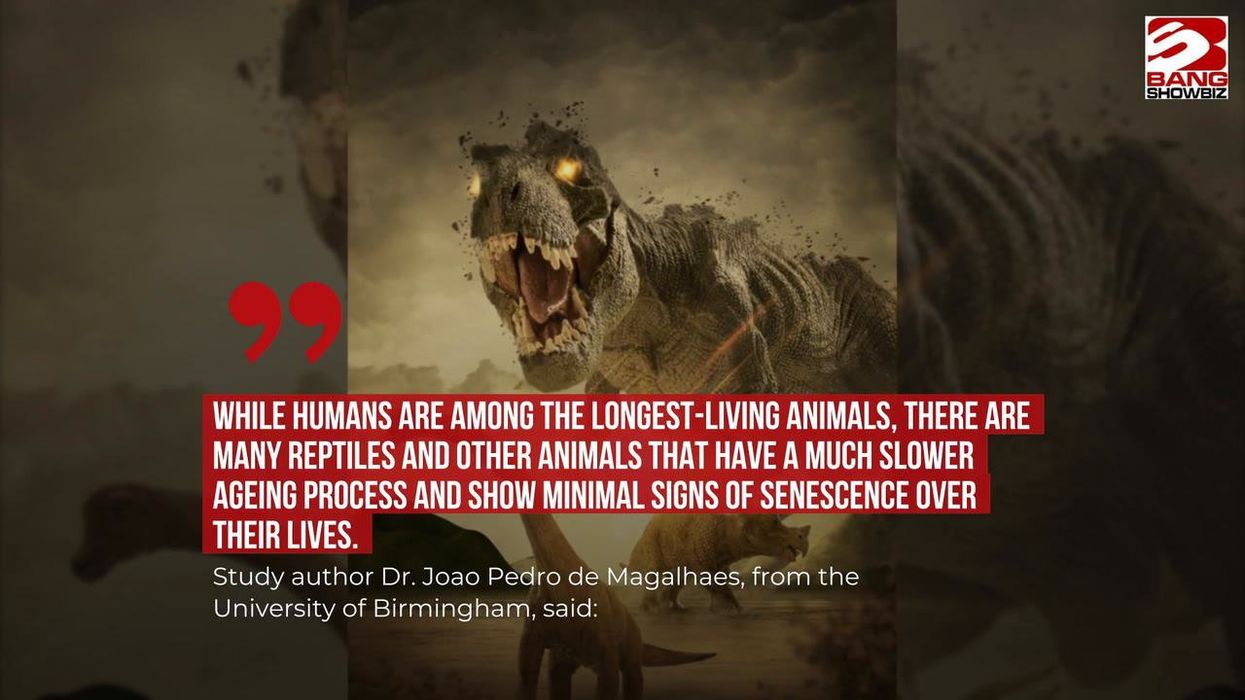Alex Daniel
Jan 07, 2024
Dinosaurs have influenced human ageing
Bang Showbiz - Bang Bizarre / VideoElephant
The human ageing process of sore joints, wrinkles and other signs of old age could have been partly caused by the dinosaurs, according to a new research paper.
Some reptiles and amphibians do not show much sign of ageing before they die, but all mammals change in appearance as they age.
This "longevity bottleneck hypothesis" suggests that the evolutionary pressure that dinosaurs put on mammals during the Mesozoic Era – about 100 million years ago – may have led to the loss of genes allowing for a longer life.
The paper in BioEssays suggests that this may have led to our decreased ability to repair DNA and regenerate tissue.
Study author Dr Joao Pedro de Magalhaes from the University of Birmingham wrote: "While humans are among the longest-living animals, there are many reptiles and other animals that have a much slower ageing process and show minimal signs of senescence over their lives.
"The ‘longevity bottleneck hypothesis’ may shed light on evolutionary forces that have shaped mammalian aging over millions of years."
Ageing has been found to be triggered by several factors, including running out of stem cells and the slow degradation of chromosomes.
However, scientists still aren't sure exactly why this happens. Some think it could be an accumulation of damage to our genes.
Others suggest our genes are designed to help us early in life at the cost of our later years.
De Magalhaes added: "Some of the earliest mammals were forced to live towards the bottom of the food chain and have likely spent 100 million years during the age of the dinosaurs evolving to survive through rapid reproduction.
"That long period of evolutionary pressure has, I propose, an impact on the way that we humans age."
"We see examples in the animal world of truly remarkable repair and regeneration.
"That genetic information would have been unnecessary for early mammals that were lucky not to end up as T. Rex food.
"While we now have a plethora of mammals – including humans, whales, and elephants – that grow big and live long, we and these mammals live with the genetic constraints from the Mesozoic Era, and we age surprisingly faster than many reptiles.
"While just a hypothesis at the moment, there are lots of intriguing angles to take this, including the prospect that cancer is more frequent in mammals than other species due to our evolutionary history."
How to join the indy100's free WhatsApp channel
Sign up to our free indy100 weekly newsletter
Have your say in our news democracy. Click the upvote icon at the top of the page to help raise this article through the indy100 rankings.
Top 100
The Conversation (0)














